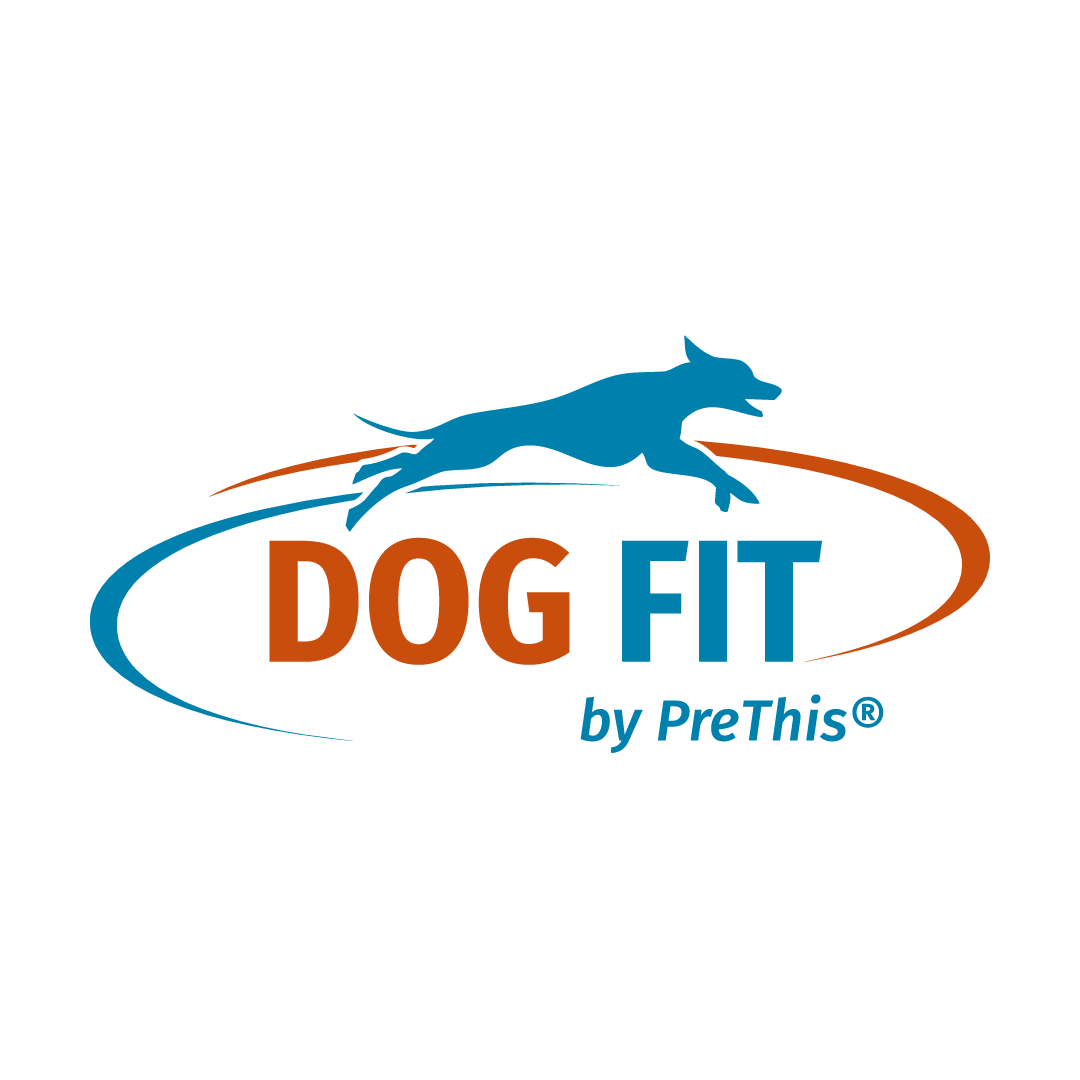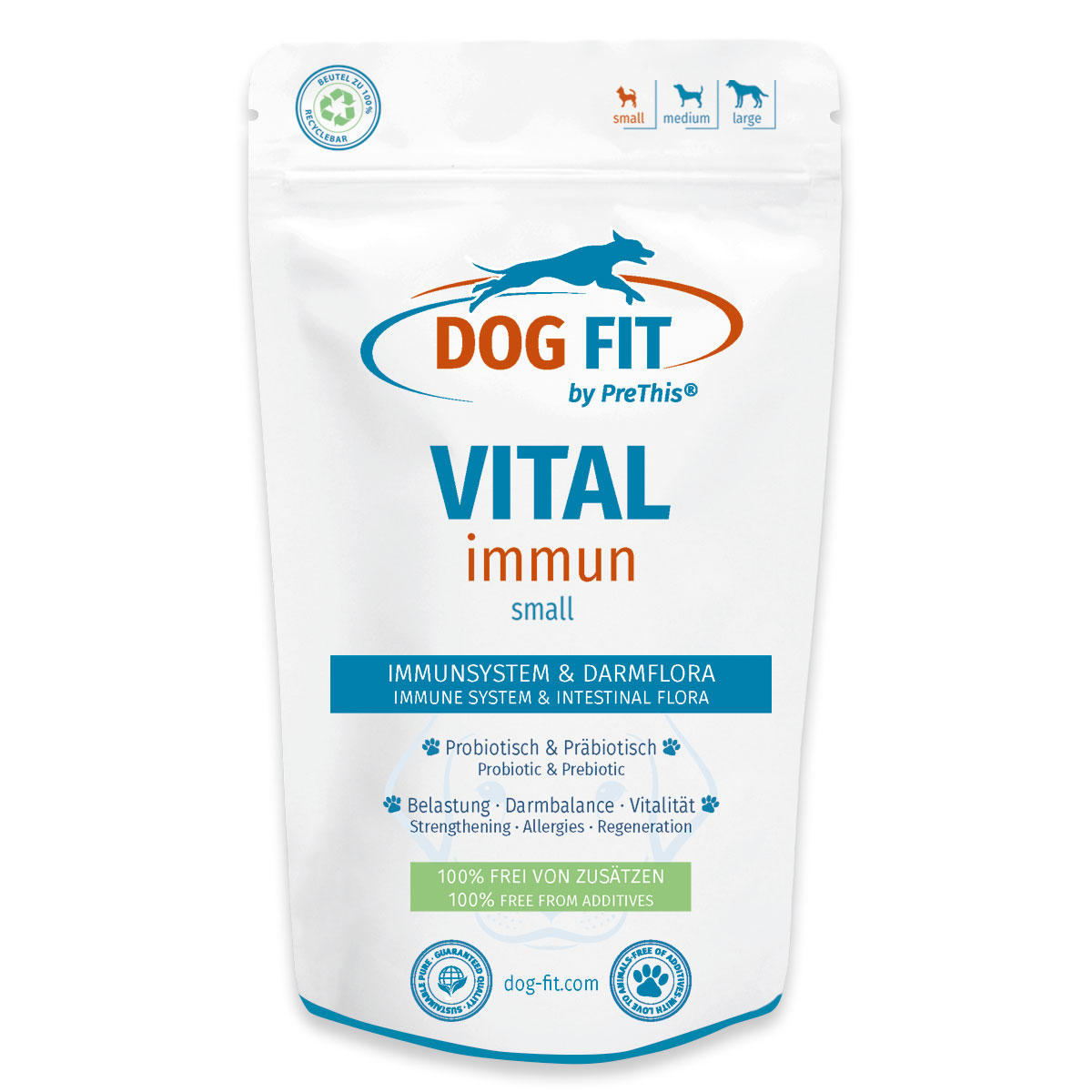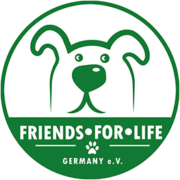
When it comes to the health of our dogs, allergies and food intolerances are increasingly coming into focus. They are not uncommon in dogs and can affect various areas of life – from the skin and digestion to the respiratory tract. In this article, you will receive a comprehensive overview of allergies in dogs, the role of the immune system, intestines, and intestinal flora, as well as sensible measures for everyday life.
Allergies in dogs: A complex reaction of the immune system
Allergies in dogs arise when the immune system reacts oversensitively to otherwise harmless environmental substances (allergens). These substances can be found in food, pollen, dust mites, flea saliva, or other substances. The immune system then initiates a defensive reaction, which can be accompanied by a variety of symptoms. Allergies often occur spontaneously in dogs over the course of their lives.
Allergies or intolerance? The difference is important
Many dog owners confuse allergies with intolerances. While allergies are an immunological overreaction, intolerance is usually caused by an enzyme deficiency or an intolerance – the immune system is not involved here.
- Allergy:
- Immune reaction to an allergen, often with skin problems (itching, redness), digestive problems, and even breathing problems.
- Intolerance:
- Usually affects digestion (e.g., lactose intolerance), leading to diarrhea, flatulence, or vomiting after contact with certain ingredients.
The treatment therefore differs: While allergies often require targeted allergen avoidance and support of the immune system, in the case of intolerances, avoiding the triggering substance is usually sufficient.
Food intolerance – a particular challenge
Food reactions are among the The most common form in dogs. The animal usually reacts to proteins of animal or plant origin or additives. Symptoms include persistent itching, reddened skin, recurring ear infections, and gastrointestinal complaints such as vomiting or loose stools. Chronic intestinal inflammation can also result.
In many cases, a switch to an individually tailored diet is essential to restore your dog’s well-being. Industrially produced foods – especially dry food – are generally unsuitable for this purpose. Consultation with an experienced canine nutritionist is recommended, as veterinarians often lack this important additional qualification – it is not a standard part of their training. A clear indication of this is when the vet recommends hypoallergenic or diet dry food, which they then often also offer themselves.
Symptoms of allergies: From the skin to the intestines
The signs of allergies are very diverse and individual:
- Itching, redness, and scratching
- Ear inflammation, recurring hot spots
- Digestive problems (vomiting, diarrhea, flatulence)
- Licking of paws, hair loss
Not every skin irritation is an allergy. Parasites, infections, or metabolic diseases can also cause similar symptoms.
Immune system, intestines, and intestinal flora – an inextricable connection
A healthy intestinal flora is central to the immune system and can significantly influence a dog’s susceptibility to allergies. Over 70% of immune cells are located in the intestines. If the intestinal flora is disturbed, this can lead to increased permeability of the intestinal mucosa (“leaky gut”) and promote allergies.
Important building blocks for a healthy intestine are a high-quality, species-appropriate diet and the targeted use of probiotic bacteria to support the intestine’s natural defenses.
Colostrum: Natural support for the immune system
Colostrum contains numerous bioactive substances such as immune factors, antibodies, and growth factors that can modulate the immune system and strengthen the intestinal flora. In addition to nutrients such as amino acids, vitamins and minerals, the probiotic bacterial strains it contains are particularly important: They help promote a healthy intestinal flora and thus strengthen the barrier function of the intestinal mucosa.
Colostrum is therefore a valuable supplement not only for puppies, but also for adult dogs with a tendency to allergies – of course always as part of an overall concept.
Everyday tips for dogs with allergies
- Avoid allergens: Try to identify the triggersIdentify and avoid potential allergies as much as possible (e.g., certain foods, pollen seasons).
- Adjust feeding: Choose high-quality, unprocessed ingredients wherever possible and ensure a varied, balanced diet.
- Strengthen intestinal flora: Supplement the diet with probiotic foods or appropriate supplementary feed if necessary.
- Check the environment: Keep sleeping areas clean, wash dog blankets regularly, and use special allergy covers for dust mites.
- Regular grooming: Check your dog’s coat, ears, and skin to detect any changes early on.
- Veterinary support: If allergies are suspected or if symptoms persist, a veterinarian or animal health practitioner should always be consulted.
Living with a dog enriches everyday life in a special way. Together, you experience many small and large adventures that make life more beautiful. Trust, care, and mutual understanding characterize the special bond between humans and dogs. Every day offers new moments of happiness and connection.
Product information: VITAL immun 🛒 – Natural supplementary food for dogs with carefully balanced micronutrients. Free from additives and genetic engineering. Discover now in the shop:Vital immun plus in the shop

The content of the articles is for general information purposes only and does not replace diagnosis or treatment by a veterinarian. Reviews or testimonials are individual reports from verified customers. This information does not constitute medical advice and should not be understood as such.
Our daily inspiration comes from the special moments with our dogs. Here we share this enthusiasm and invite you to become part of the DOG FIT community on our social media channels.



Leave a Reply